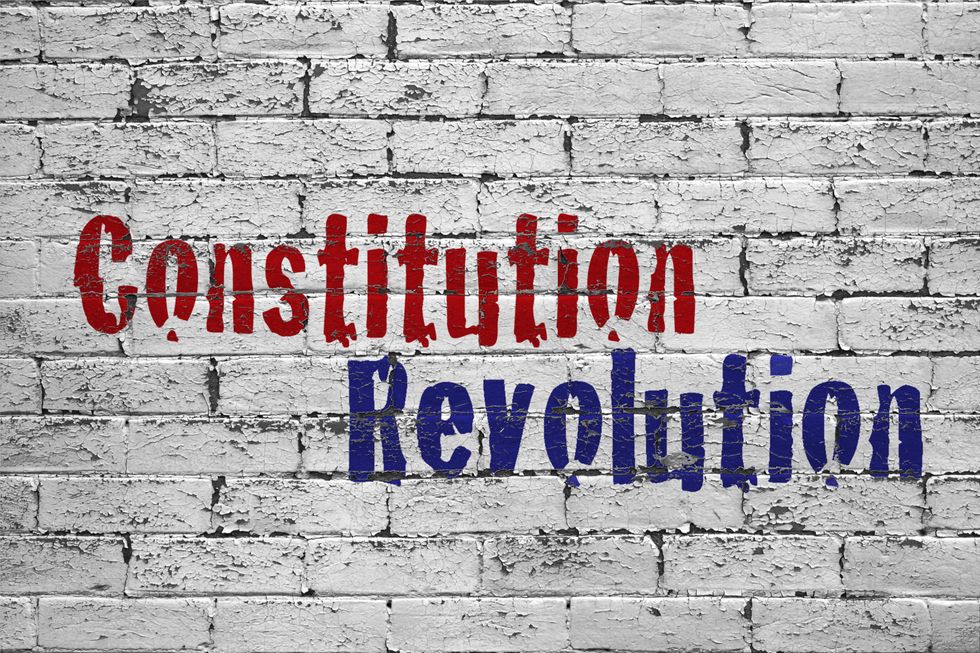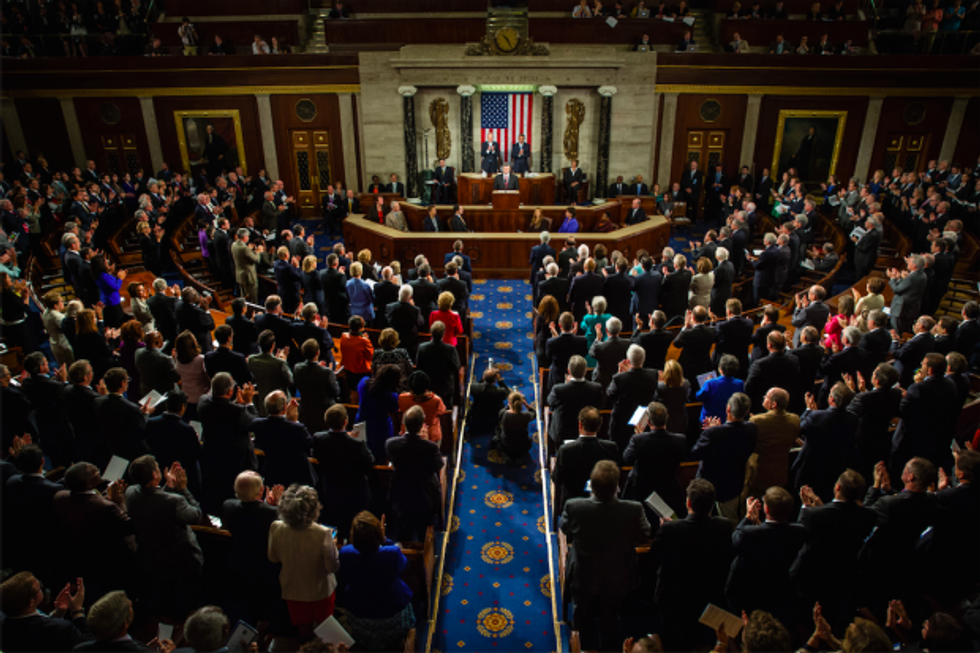
Photo Courtesy of Author.

This post is the continuation of a weekly Constitution Revolution series for TheBlaze.com and TheBlaze Radio’s Chris Salcedo Show. To see last week’s lesson, click here.
–
Before we move on from Article 1, Section 7, let’s take one last look at how a bill becomes a law. It’s worth spending some time on this part of the Constitution because it does a fantastic job of illustrating the difference between how our Founders approached government - and how we’ve approached government over the last 100 years.
Our Founders knew that we would have politicians who would try to get around whatever system we had. And they were right.
It’s inevitable that we will have politicians who will try to find any loophole that will allow them to get what they want even when everyone else opposes their ideas. So when our Constitution was written, a lot of time was spent trying to figure out what types of dirty tricks and dishonest games our public officials would try to play—and then coming up with ways to guard against those.
For an example of that, take a look at the end of Article 1, Section 7. After explaining the basics of how a bill becomes a law, it says:
“If any Bill shall not be returned by the President within ten Days (Sundays excepted) after it shall have been presented to him, the Same shall be a Law, in like Manner as if he had signed it, unless the Congress by their Adjournment prevent its Return, in which Case it shall not be a Law.”
Have you ever wondered why those little details were added? I always did.
It turns out, they serve a few very important purposes.

Let’s start with the first detail in this section. Allowing a bill to become a law if it isn’t vetoed within 10 days forces the president to take responsibility for his actions. If he wants to veto a bill, he can’t just ignore it in hopes that it will go away. He has to take an indisputable action that shows everyone that he is knowingly and intentionally vetoing that piece of legislation.
This way, when someone tries to hold the president accountable for that bill not becoming a law, he can’t turn around and say, “What bill? I had never even heard of that bill until just now!” (Not that we would ever have a president who would make lame excuses like that.)
This 10-day window also guards against another potential dirty trick. Think about it - what happens after the president vetoes a bill? It goes back to Congress where our representatives have an opportunity to over-ride his veto. But, if the president never vetoes the bill, Congress can’t over-ride it.
But because of this 10-day window, if the president is worried that his veto might be over-ridden, he can’t just sit on the bill indefinitely to prevent Congress from ever having the opportunity to do so.
This provision is a brilliant way to keep the president from using a shady tactic to get his way when he knows that he doesn’t have enough political support to do it the proper way.
But the president isn’t the only one who is capable of playing dirty tricks, is he? That’s where the second detail comes in:
“… unless the Congress by their Adjournment prevent its Return, in which Case it shall not be a Law.”
Ok. What in the heck does that mean?
Remember, if the president doesn’t return a bill to Congress within 10 days it becomes a law even without his signature. This clause is saying that Congress can’t intentionally prevent the president from having an opportunity to return it to them as a way of getting around his veto. He has to be given a full 10 days to veto it before it can become a law without his signature.
Here’s what this provision is trying to prevent.
Let’s say that members of Congress have enough votes to pass a bill that the president opposes, but they don’t have enough votes to over-ride a veto. They can’t get together to pass the bill, then turn right around and immediately adjourn the session of Congress and leave town so the president doesn’t have anyone to return the bill to.
Both of these provisions are attempts to force our politicians to go through the lawmaking process the way it was designed.
The Founders knew that we would have politicians who would resort to all kinds of tricks in order to get what they want. They also knew that we had to protect ourselves from that.
But our approach to government today is completely different. Most Americans know that a lot of politicians are corrupt but we don’t bother to do anything protect ourselves from them. We keep giving the federal government more and more power and we allow our politicians to ignore the Constitution; then we just hope that enough of our public officials will be good people who won’t do anything bad to us.
Think about what happened just a couple of weeks ago. We allowed President Barack Obama to unilaterally sign an agreement with Iran without getting Congressional approval. What is there to prevent this president - or any future president - from abusing that power? Nothing!
We also keep giving unelected, faceless bureaucrats in executive agencies like the Department of Health and Human Services more and more power to create rules that affect our personal lives. In fact, we are going out of our way to make these bureaucrats as unaccountable as possible. What’s to stop them from creating abusive or oppressive rules? Great question!
I understand that it can be uncomfortable to admit it, but government is a very dirty and nasty business. And because of the amount of power and money involved, it attracts a lot of dirty and nasty people. So we have to approach it as such.
That means two things for us today. First, we need to start enforcing our Constitution. As you just saw, even the seemingly insignificant parts like the process for creating laws are designed to guard against political dirty tricks.
Second, we need to take the Founders approach to government when we are creating new policies. We have to stop acting like rampant political corruption is inevitable and there’s nothing we can do about it. Instead, we need to make two questions a major part of every debate about new policies. What types of dirty tricks and dishonest games will our public officials try to play with this policy? And what can we do to protect ourselves from that?
Chad Kent is an author and speaker with a unique style that makes the Constitution simple and fun. Listen to Chad every Saturday during The Chris Salcedo Show on TheBlaze Radio, visit his web site at www.ChadKentSpeaks.com, and like his Facebook page at www.facebook.com/theconstitutionguy.
–
TheBlaze contributor channel supports an open discourse on a range of views. The opinions expressed in this channel are solely those of each individual author.